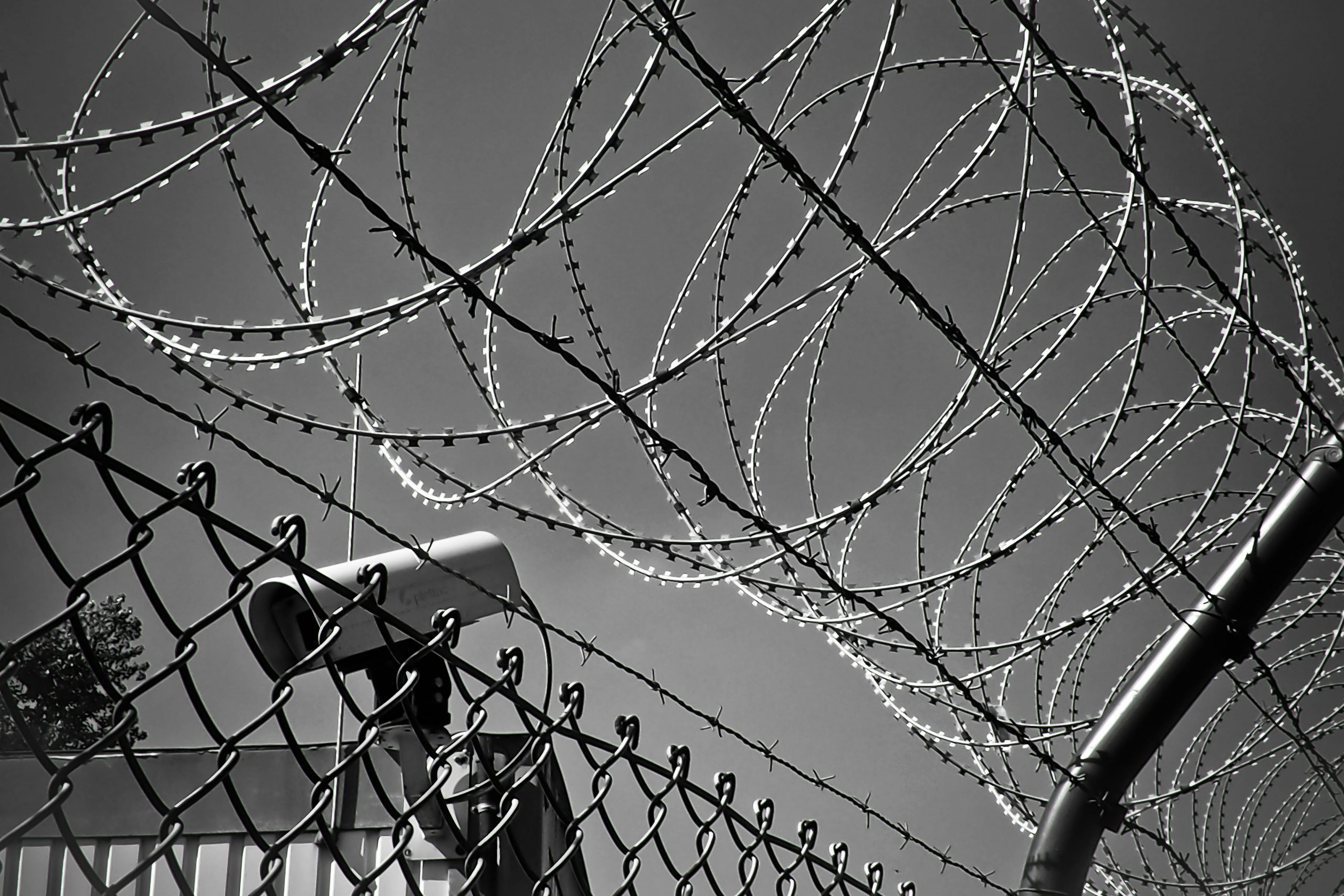
Barbed and razor wire, chain link fence, and a security camera in a somber gray. Image by Pixabay under Pexels license.
Youth (10-17 year-olds) today who commit crimes in the United States are typically processed through the juvenile justice system because of the Juvenile Justice Reform Act. Initially passed in 1974, the law set some common standards for separating youth and adults in the justice system In many states, however, minors can still be processed and incarcerated as adults due to the severity of their crimes – leading to potentially serious negative physical, financial, and emotional effects for these youth.
Researchers Megan Kurlychek, Matthew Kijowski, and Alysha Gagnon analyzed a group of New York youth, aged 16 and 17, who were incarcerated as adults. These youth were tracked for 24 years after their initial arrest, with researchers monitoring their subsequent criminal histories.
They found that youths who were processed and incarcerated with adults “recidivate more often, more quickly, and commit more total offenses” compared to a matched sample of youth not incarcerated with adults. To help explain why, the authors referred to studies of adolescent brain development and socioemotional regulation. When housed with adults, they are less likely to form age-appropriate social connections and achieve early milestones. As a result, their odds of continuing illegal and antisocial behaviors into their young adult years increased. Additionally, the researchers found that the formal application of the “youthful offender status” label to their cases – rather than the adult-offender label – reduced recidivism and removed the public stigma of an adult criminal record.Overall, this research 1) supports the notion that treating youths as adults in the criminal justice process is harmful to them and 2) advocates for the use of age-appropriate alternatives to prevent further harm and benefit broader society.

Comments